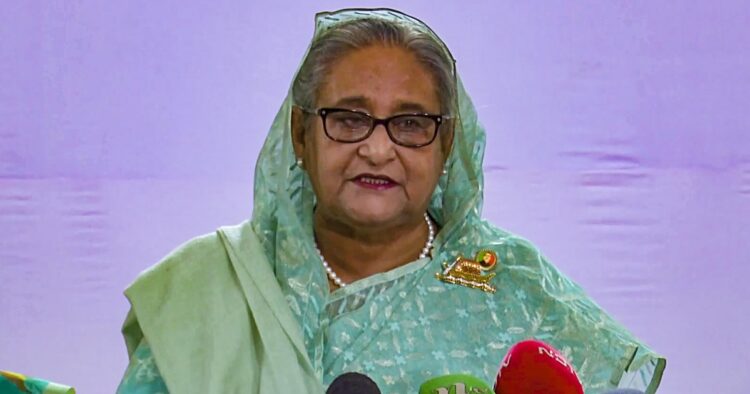On Tuesday, Prime Minister Sheikh Hasina announced that her government will seek foreign technical assistance for a judicial investigation into the deaths that occurred during recent protests against the country’s controversial job quota system. This decision aims to ensure a thorough and high-quality inquiry into the events that led to the deaths of many people.
The protests erupted over a quota system that reserved 30 percent of government jobs for the relatives of veterans from Bangladesh’s 1971 War of Independence. The movement, led mainly by students, called for an end to this system. The clashes between police and protesters escalated quickly, leading to violence and damage across the country.
During a meeting with Germany’s Ambassador to Bangladesh, Achim Troster, Prime Minister Hasina revealed that Bangladesh is in talks with the United Nations about obtaining assistance for the inquiry. The official BSS news agency reported her statement on this matter. She emphasized the importance of ensuring that the investigation is carried out to the highest standards.
The government has established a Judicial Inquiry Committee, headed by High Court Justice Khandaker Diliruzzaman, to investigate all deaths linked to the quota reform protests. This step marks the first official acknowledgment of the scale of the violence, with the government now recognizing that 150 people lost their lives during the unrest.
The protests began at universities and colleges but quickly spread, leading to widespread agitation against Prime Minister Hasina and her government. The situation became severe enough that the army was called in to restore order. Thousands of people, including police officers, were injured, and major government buildings were damaged.
Prime Minister Hasina’s press secretary, Md Nayeemul Islam Khan, confirmed that the UN has expressed interest in assisting with the inquiry. The prime minister also mentioned that Germany, a country with a long-standing relationship with Bangladesh, is supportive of the investigation. Germany’s Ambassador, Achim Troster, assured that his country stands with Bangladesh and supports an independent inquiry into the matter.
The protests eventually subsided after the Supreme Court of Bangladesh ordered a significant reduction in the quota system on July 21. The new order reduced reserved posts to seven percent, allowing 93 percent of jobs to be filled based on merit. The government issued a notification to implement this change.
The government has suggested that the protests were hijacked by the Jamaat-e-Islami (JI) party and their student activists, who were allegedly backed by the Bangladesh Nationalist Party (BNP) led by former Prime Minister Khaleda Zia. The BNP had boycotted the general elections held earlier this year.
The government has accused the JI of using the protests to incite nationwide chaos, resulting in an estimated economic loss of around USD 10 billion.
The situation remains tense as the country continues to deal with the aftermath of the protests and the ongoing investigation into the violence that occurred.

















Comments